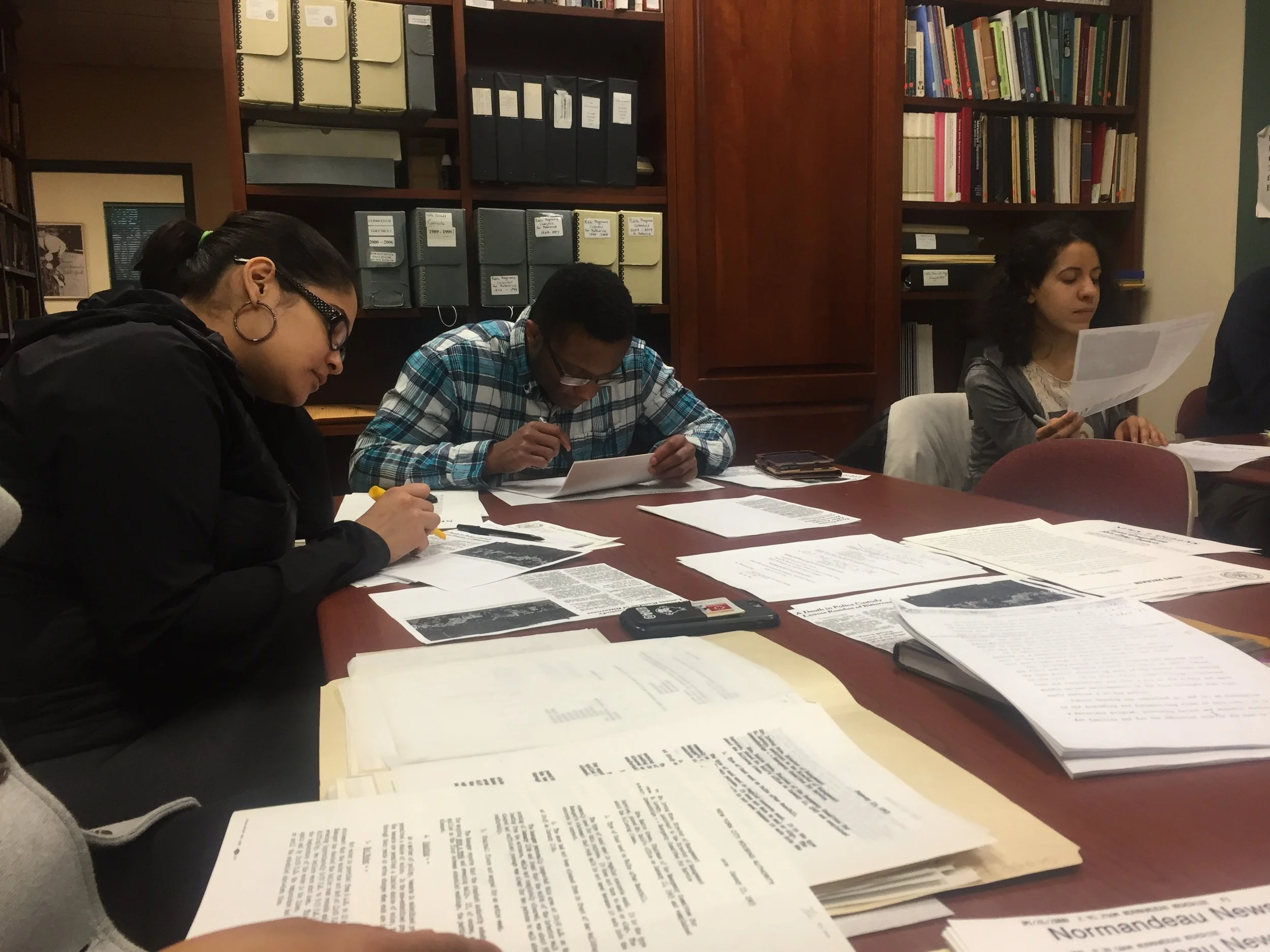Voices of Queensbridge: Pedagogical Overview of an Oral History Project
Adapted from writing in Voice of Queensbridge: Stories from the Nation’s Largest Public Housing Development
By Molly Rosner
In the fall of 2018, a group of LaGuardia Community College students embarked on a year-long project to document the experiences of New York City Housing Authority (NYCHA) residents. This project was funded by the Robert D. L. Gardiner Foundation. These stories were aimed at enriching the LaGuardia and Wagner Archives’ NYCHA collection, which until this project only reflected the agency’s perspective on public housing. The vastness of public housing in New York City necessitated that the students focus on one public housing project and Queensbridge Houses, the nation’s largest public housing development, were selected due to abundant documentation of the development, and its vicinity to the college.
Read More








